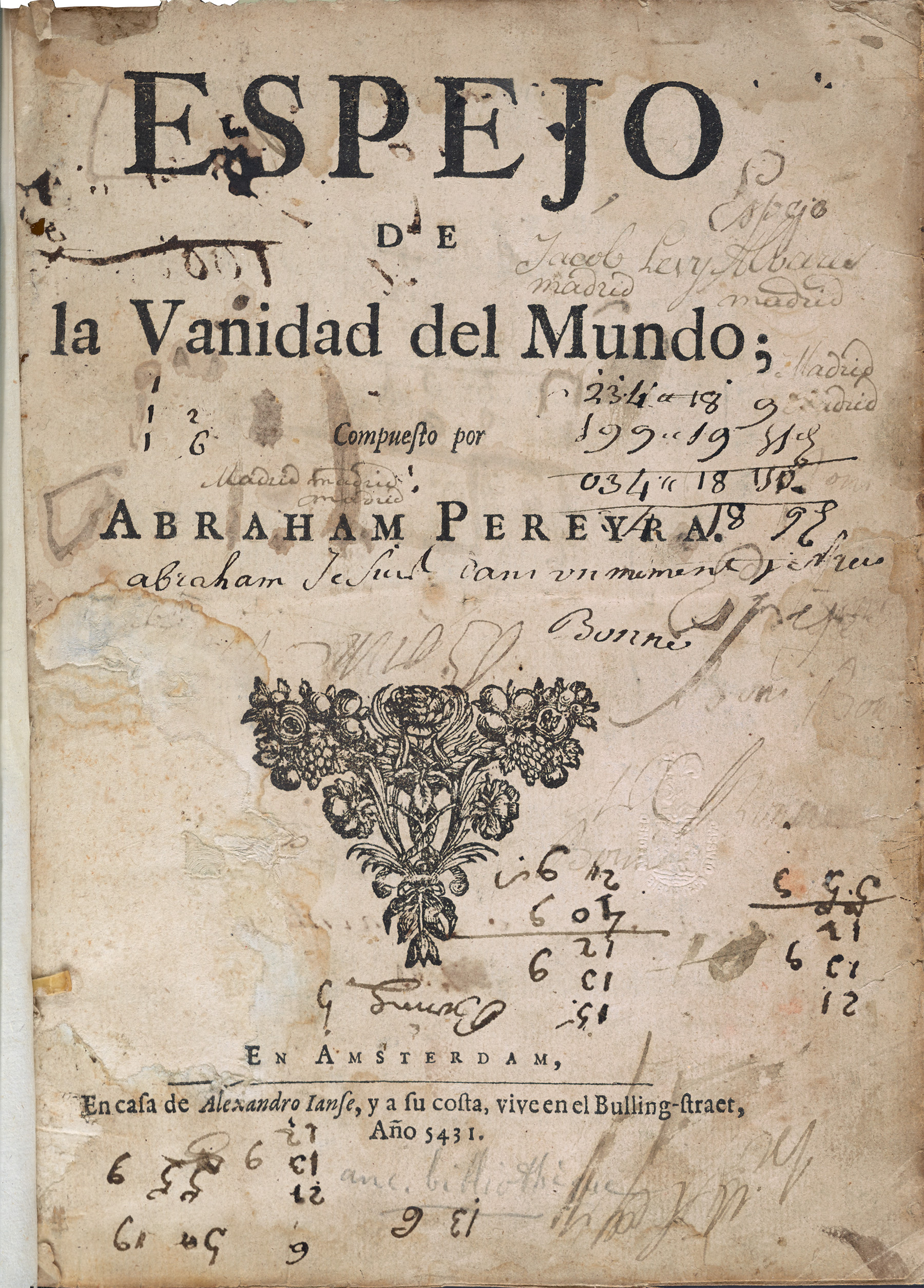Abraham Pereyra was a former converso who turned to Judaism in Amsterdam in midlife. A leading figure in business and then a member of the lay governing council of the community, Pereyra also produced two books within six years: La Certeza del Camino ("The Certainty of the Path," 1666) and the one shown here, Espejo de la Vanidad del Mundo ("Mirror of the World's Vanity," 1671). Despite Pereyra's prominence in his own time, his books have received little attention in modern scholarship. They are essentially compilations or compendia of wisdom from diverse sources
Among the many topics he addresses is the governance of the community. Calling it a "republic" and the lay leaders "governors," he adapts early modern political philosophy and practical advice from the mirrors-for-princes genre, for the Jewish communal context. With anti-Machiavellian leanings, he inveighs against those who desired to separate religion from politics, insisting that governors must be personally pious and that government should adhere to strict religious dictates. Both books contain this kind of material, but the Espejo's treatment is greatly revised and expanded from the first, suggesting that politics were a focus of his thinking in the intervening years. Pereyra's discussions are part of a widespread discourse regarding communal politics in the Sephardi community of Amsterdam in the second half of the seventeenth century.
